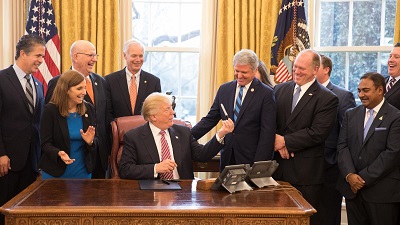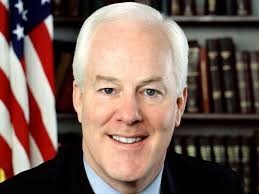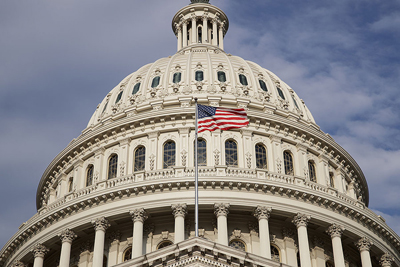Let’s Put an End to One-Sided Science
 Science plays a critical role in the lives of all Americans. Every day, people around the world devote their lives to science and strive to advance our understanding of such complex subjects as human health and the environment.
Science plays a critical role in the lives of all Americans. Every day, people around the world devote their lives to science and strive to advance our understanding of such complex subjects as human health and the environment.
To uphold the highest professional standards means to support the scientific method. This model helps guarantee that theories undergo rigorous experimentation and that when results do not match the original hypothesis or when reproducibility is not possible, that scientists reconsider their theories.
The media often overlook the fact that many of these “scientific discoveries” cannot be reproduced, which is a basic tenet of the scientific method. In 2016, Nature conducted a survey of over 1,500 scientists, which found that 70 percent of researchers have tried and failed to reproduce another scientist’s experiments.
Scientists should be held to the same level of scrutiny as professionals in all fields. They are not without fault and their work should not be exempt from inspection. In fact, because their work frequently leads to costly environmental regulations paid for by hardworking Americans, scientists should be held to the highest standards. It does a disservice to all scientists if some are dismissing basic principles of the scientific method and producing results that cannot be verified.
Scientists today are hesitant to consider contradictory viewpoints and change their hypotheses, even when presented with contradictory credible data. This comes as no surprise when the media are quick to publish what they call mainstream scientific findings and scientists are largely funded by those with a predetermined agenda.
In effect, the media are dictating what science is worth believing. This type of behavior is anti-science and should be shut down. Let science stand on its own merits, and let American citizens have access to all the science. We should also invite open and honest debate, not stifle differing scientific opinions. These basic scientific principles underpin commonsense legislation that I have sponsored such as the HONEST Act, which requires that Environmental Protection Agency regulations be based on data that is publicly available.
Those who claim to be on the side of science, yet reject scientific data that does not fit their worldview, appeared to be overwhelmingly represented at the “March for Science.” Marching for science should mean having the courage to consider all credible viewpoints, even those that could potentially disprove long-standing theories. Marching for science means accepting that science is never settled, and that new observations and discoveries cannot be ignored and should even be encouraged.
The Science Committee is committed to advancing science by upholding its core principles. Just last month, the committee held a hearing on climate science and the scientific method with notable and respected scientific scholars. Unfortunately, many chose not to focus on the remaining scientific uncertainties we face before meaningful action is considered. Scientific debate should continue to enhance our understanding of issues such as the world’s changing climate.
It is unfortunate that those who question what the media and others consider the scientific “status quo” are stigmatized as being “against science.” It is time to recognize that science is not a set of facts, but a path to discovery, with rapidly changing theories and persistent inquiry.
We as a society should welcome commentary from both sides of scientific debates. When it comes to science on which environmental regulations are based, for example, a holistic approach is the only way to move from “trust-me science” to science that has a strong foundation based on the scientific method.








